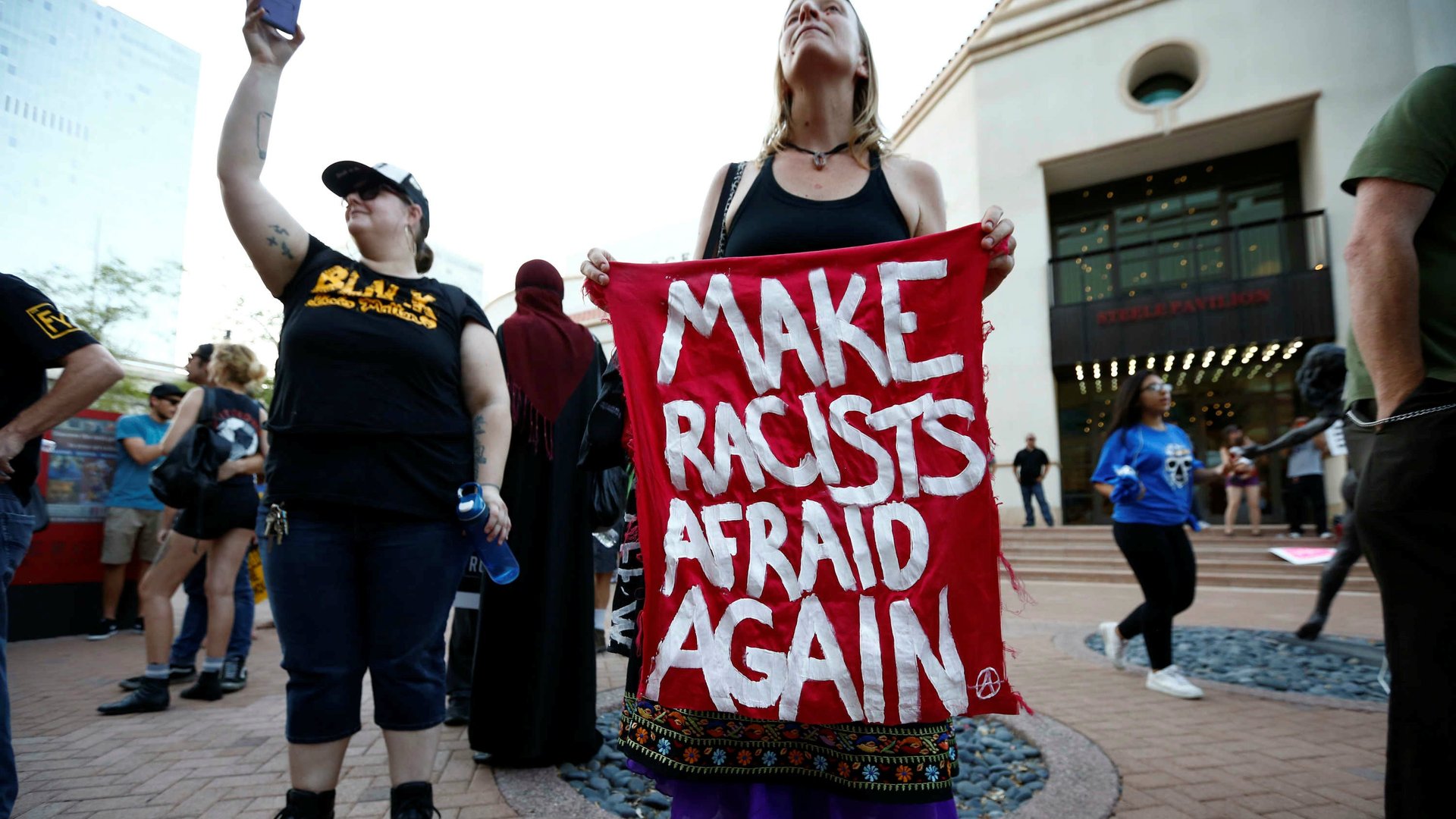Decades of research show that the most powerful strategy to fight racism requires white people
The specter of ethnic violence hangs over the United States. US president-elect Donald Trump’s incendiary rhetoric about Muslims, Mexicans and other groups have appealed to white nationalists, and racist attacks appear to be on the rise since his victory. Trump has a track record of encouraging violence [paywall], and minority groups in the US feel unusually threatened.


The specter of ethnic violence hangs over the United States. US president-elect Donald Trump’s incendiary rhetoric about Muslims, Mexicans and other groups have appealed to white nationalists, and racist attacks appear to be on the rise since his victory. Trump has a track record of encouraging violence [paywall], and minority groups in the US feel unusually threatened.
How can Americans make sure these tensions don’t boil over? According to the political scientist Cullen Hendrix, the answer is monitoring your own group. That means white people should call each other out.
Hendrix is a professor at the University of Denver, where he researches the politics of conflict and repression in Africa. Following Trump’s victory, Hendrix set down his thoughts on what Americans could learn from international research on ethnic conflict.
His review of the literature suggests Americans have every reason to be concerned about rising ethnic violence. ”Demographic decline in the dominant ethnic group–either real or perceived–is often politically destabilizing,” writes Hendrix. He cites research [paywall] arguing that the likelihood of ethnic conflict in a country increases when the proportion of the majority declines—just as the proportion of the whites in the US is dwindling today. Hendrix also points to political science research which finds that inequality across ethnic groups is associated with a higher likelihood of ethnic conflict. Again, the United States certainly fits the bill, with vast differences in wealth across ethnic and racial groups.
But its not all bad news. Regardless of what the media might make us think, Hendrix says, ethnic violence remains relatively rare. Across the world, peace and cooperation are the norm. This is particularly true when ethnic groups assure that bad actors within a community are disciplined.
In arguing for the importance of in-group monitoring, Hendrix highlights the influential research [paywall] of Stanford political scientists James Fearon and David Laitin. Fearon and Laitin’s research hinges on the importance of “information asymmetries” between groups. This is basically the idea that within your group, you are better able to identify wrongdoers, and correctly punish them. If members of the wronged group can trust that this punishment will be exerted by the community of the aggressor, then they don’t need to act. Without such trust that wrongdoing will meet societal punishment, the wronged group may retaliate indiscriminately, leading to a heightening of tensions.
Laitin adds that police have an important role to play. ”[W]e need police forces that are neutral and sufficiently embedded in local communities such that they are information rich,” David Laitin told Quartz by email. “They need to be able to distinguish between informants who are reporting on actual threats from those merely seeking police help in punishing their own enemies.”
As concerns about ethnic conflict mount in the United States, the message of this political science research is clear: If you want to maintain harmony, call out and ostracize the racists in your own community.